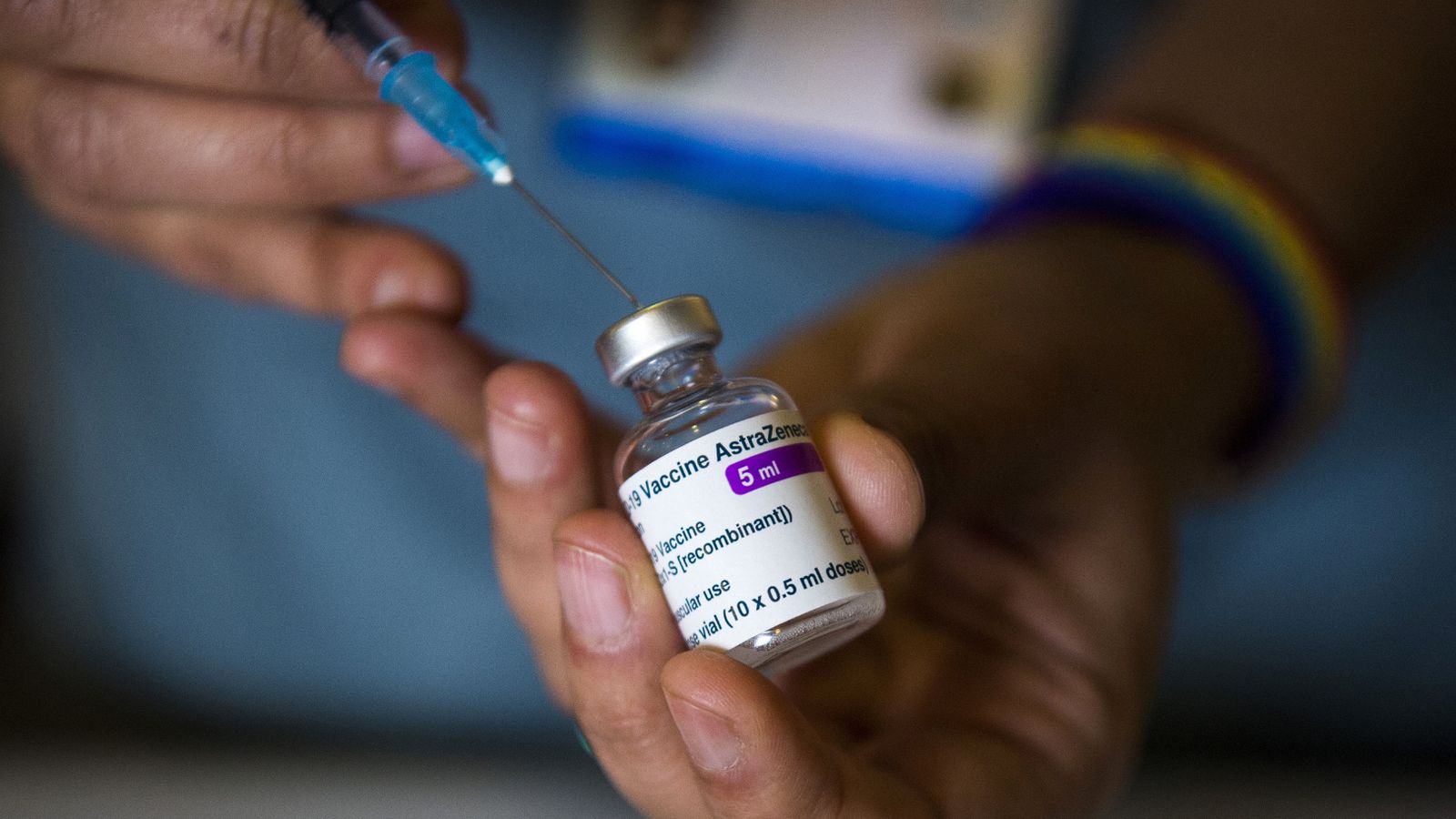Boris Johnson has pledged coronavirus jabs will be given 24/7 “as soon as we can” – as AstraZeneca said it expects to release two million doses a week of the Oxford vaccine by mid-February.
The prime minister said the process of protecting people is already going “exceptionally fast” but “at the moment the limit is on supply” of the vaccine.
“We will be going to 24/7 as soon as we can,” he told MPs in the House of Commons, adding Health Secretary Matt Hancock would be setting out further details “in due course”.
Live COVID updates from UK and around the world
His comments came minutes after his vaccines minister Nadhim Zahawi confirmed the government is considering a 24-hour vaccination programme to meet its promise to have the UK’s four most vulnerable groups vaccinated by the middle of next month.
Mr Zahawi told MPs on the Science and Technology Committee ministers “will absolutely look” at the measure when asked about it, adding that he is confident the government will achieve its target.
The NHS needs to accelerate inoculations to vaccinate 14 million people in just five weeks.
AstraZeneca said manufacture is a biological process that can’t be accelerated, but the company is confident of supplying tens of millions of doses in the first quarter of 2021.
“We’ve released just over 1.1 million doses, to date, and we are scaling up as we’ve said very rapidly. And this will happen imminently, to releasing two million doses a week, we’re absolutely on track to do that,” said Tom Keith-Roach, president of AstraZeneca UK.
“We’re scaling up to two million a week imminently, and certainly we hope to be there on or before the middle of February,” he told the cross-party parliamentary committee.
The vaccine maker’s research chief also gave evidence to the committee, telling MPs his staff should get priority access to the jab to avoid COVID outbreaks hindering production.
“One of the things that I’m worried about is actually maintaining a continuous supply and work on this vaccine,” Sir Mene Pangalos said.
“Of course, with the outbreak and the pandemic where it is I feel it’s critical to the people that are working on this vaccine are actually immunised.
“Because if you have an outbreak at one of the centres – which we’ve had actually – or in one of the groups in Oxford is working on new variants, or the people that are working on the regulatory files, everything stops.
“This is a concern that I have and so again we’re pushing to try and get our key workers that are working on the vaccine project immunised to try and prevent these outbreaks.”
He added that current data shows that an eight to 12 week interval for the second dose of the Oxford vaccine is a “sweet spot for efficacy”.
The second dose of coronavirus vaccines are now being given three months later than originally planned to ensure more people are given a first dose to help fight the UK’s rising COVID-19 infection rate.
Subscribe to the Daily podcast on Apple Podcasts, Google Podcasts, Spotify, Spreaker
Earlier, England’s deputy chief medical officer Professor Jonathan Van-Tam defended the move to prioritise first vaccinations, rather than keeping doses to deliver booster shots after three weeks.
He told LBC Radio: “We have all got older loved ones and if we want to protect as many as we can as quickly as possible, with a meaningful amount of protection, then the right strategy for us is to give the initial first dose and come back for the second when we have given more people the initial first dose,” he said.
“If you have got two grandparents and you have got two vaccines, what do you do – do you give two doses to one and leave the other one with nothing?”
Meanwhile, journalist and TV presenter Baroness Dame Joan Bakewell is threatening the government with legal action over delays to the second dose of the Pfizer/BioNTech vaccine.
The Labour life peer said there are grounds to show the decision taken by ministers to delay the second dose by up to 12 weeks is unlawful and breaches the conditions of its authorisation – including patients’ “legitimate expectations”, with them consenting to a course of medical treatment on the understanding they would get a second dose after 21 days.


